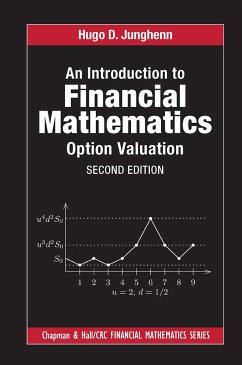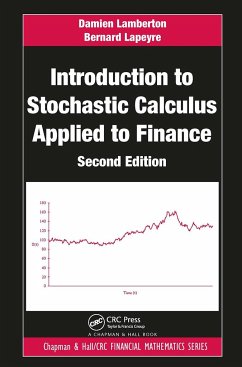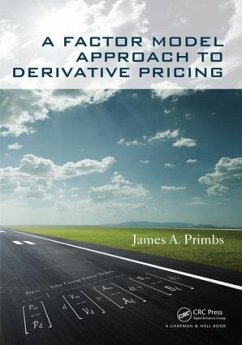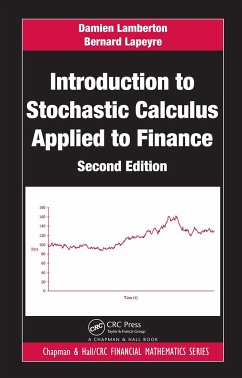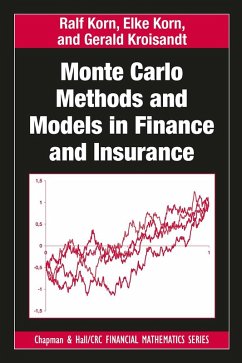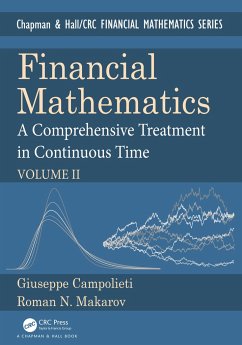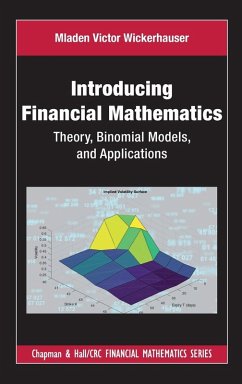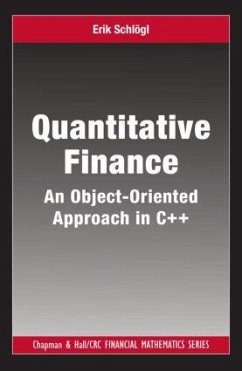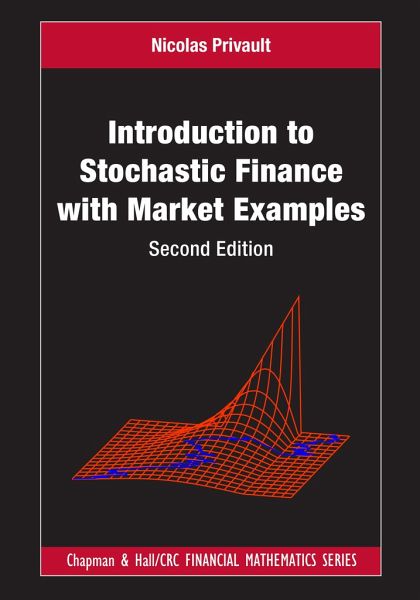
Introduction to Stochastic Finance with Market Examples
Versandkostenfrei!
Versandfertig in 6-10 Tagen
106,99 €
inkl. MwSt.
Weitere Ausgaben:

PAYBACK Punkte
53 °P sammeln!
Introduction to Stochastic Finance with Market Examples, Second Edition presents an introduction to pricing and hedging in discrete and continuous-time financial models, emphasizing both analytical and probabilistic methods. It demonstrates both the power and limitations of mathematical models in finance, covering the basics of stochastic calculus for finance, and details the techniques required to model the time evolution of risky assets. The book discusses a wide range of classical topics including Black-Scholes pricing, American options, derivatives, term structure modeling, and change of n...
Introduction to Stochastic Finance with Market Examples, Second Edition presents an introduction to pricing and hedging in discrete and continuous-time financial models, emphasizing both analytical and probabilistic methods. It demonstrates both the power and limitations of mathematical models in finance, covering the basics of stochastic calculus for finance, and details the techniques required to model the time evolution of risky assets. The book discusses a wide range of classical topics including Black-Scholes pricing, American options, derivatives, term structure modeling, and change of numéraire. It also builds up to special topics, such as exotic options, stochastic volatility, and jump processes.
New to this Edition
New chapters on Barrier Options, Lookback Options, Asian Options, Optimal Stopping Theorem, and Stochastic VolatilityContains over 235 exercises and 16 problems with complete solutions available online from the instructor resourcesAdded over 150 graphs and figures, for more than 250 in total, to optimize presentation
57 R coding examples now integrated into the book for implementation of the methods
Substantially class-tested, so ideal for course use or self-study
With abundant exercises, problems with complete solutions, graphs and figures, and R coding examples, the book is primarily aimed at advanced undergraduate and graduate students in applied mathematics, financial engineering, and economics. It could be used as a course text or for self-study and would also be a comprehensive and accessible reference for researchers and practitioners in the field.
New to this Edition
New chapters on Barrier Options, Lookback Options, Asian Options, Optimal Stopping Theorem, and Stochastic VolatilityContains over 235 exercises and 16 problems with complete solutions available online from the instructor resourcesAdded over 150 graphs and figures, for more than 250 in total, to optimize presentation
57 R coding examples now integrated into the book for implementation of the methods
Substantially class-tested, so ideal for course use or self-study
With abundant exercises, problems with complete solutions, graphs and figures, and R coding examples, the book is primarily aimed at advanced undergraduate and graduate students in applied mathematics, financial engineering, and economics. It could be used as a course text or for self-study and would also be a comprehensive and accessible reference for researchers and practitioners in the field.




